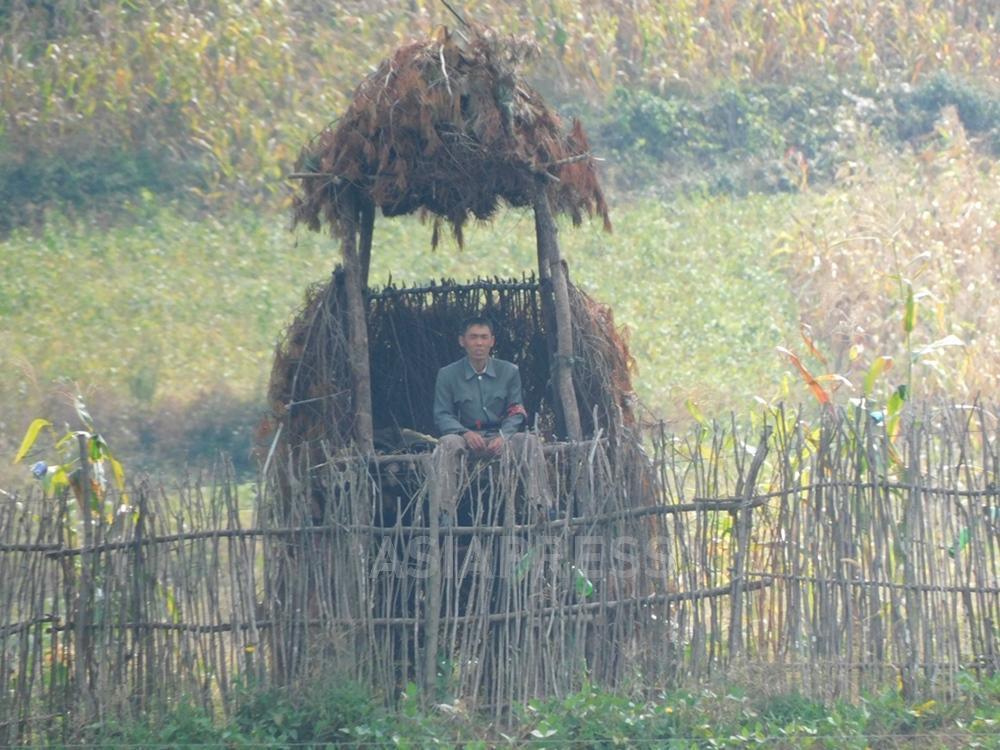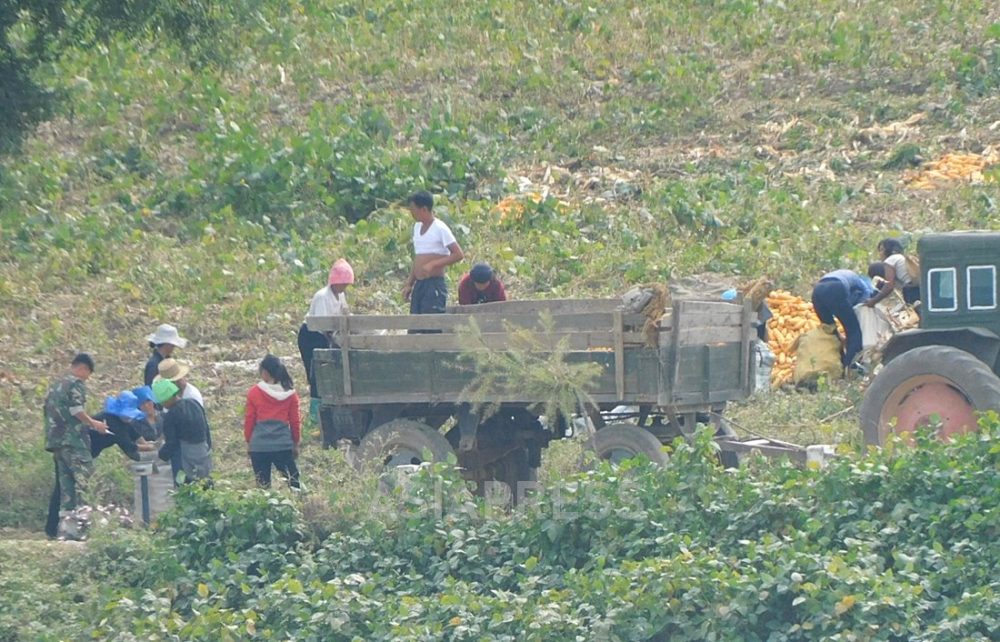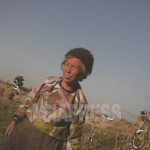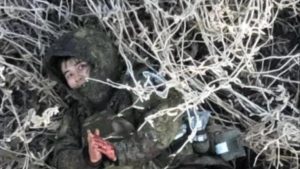In rural areas of northern North Korea during corn harvest season, there is heightened concern about crop theft and outflow, with stricter security systems in place than in previous years. At one farm in North Hamgyong Province, the military has set up checkpoints on roads and police patrol villages, while the farm independently operates a security team paying the substantial sum of 200,000 won per person per month.
Additionally, in Ryanggang Province, incidents of corn robbery in fields have occurred, leading to strict control of urban residents' access to rural areas. (HONG Mari / KANG Ji-won)

◆Compensation Level 4-5 Times That of Regular Workers
In northern regions, corn harvest usually begins after Foundation Day (September 9). Right now, just before harvest, farms everywhere are intensifying efforts to prevent crop theft. Farm worker A, a reporting partner in North Hamgyong Province, says security is stricter this year than usual:
"The farm independently organized a mobile security team of about 10 people. Veterans and others were selected from among farm workers and paid 200,000 won per month (approximately 6.24 USD), funded from the farm's own budget."
Since the current monthly wage level for regular workers at state-owned enterprises is around 35,000 won (about 1. 1 USD) to 50,000 won (about 1.56 USD), this shows how much attention is being paid to security.
※ Calculated at exchange rate of 10,000 North Korean won = approximately 0.31 USD (as of end of August).
The farms' independent organization of security teams appears to be due to agricultural policy reforms promoted by the Kim Jong-un regime. In North Korea, farms have been required to operate autonomously for several years, reducing state involvement and expanding farm discretion. The judgment seems to be that creating a security organization with their own money is more profitable than suffering losses from harvest theft in fields or warehouses.

◆7,000 Won Pay Deduction If Theft Occurs
However, while this security organization receives high compensation, it also comes with responsibilities.
A says, "If their assigned area gets robbed, 7,000 won is deducted from their pay. That's why they take turns standing guard even at night."
A explained that besides the security team, "the military monitors roads and the Ministry of Social Security (police) has also deployed mobile units," establishing a thorough security system. Still, he said, "There's less worry about thieves than in previous years, but we can't be at ease because there are cases of intrusion from cities over mountains."
◆Tying Up Guards and Stealing Corn
Reporting Partner B, who lives in Hyesan, reported that security became strict from as early as late July, well before harvest season.
"On July 21, there was an incident at Goeup Farm where unripe green corn was robbed. Three men with knives tied up the person guarding the field and fled with the stolen corn.
It seems to be the work of people in dire straits with no money and nothing to eat. After this incident, people's units investigated residents who left the district between July 19-23. Our district was also investigated by the Ministry of State Security."
※ People's units: Low-level administrative organizations typically consisting of 20-30 households, for a total of 60-80 people.
In Samjiyon as well, "there was an incident of stealing potatoes that were still only pea-sized. Since then, people have been completely prevented from approaching the fields," B explained.

























